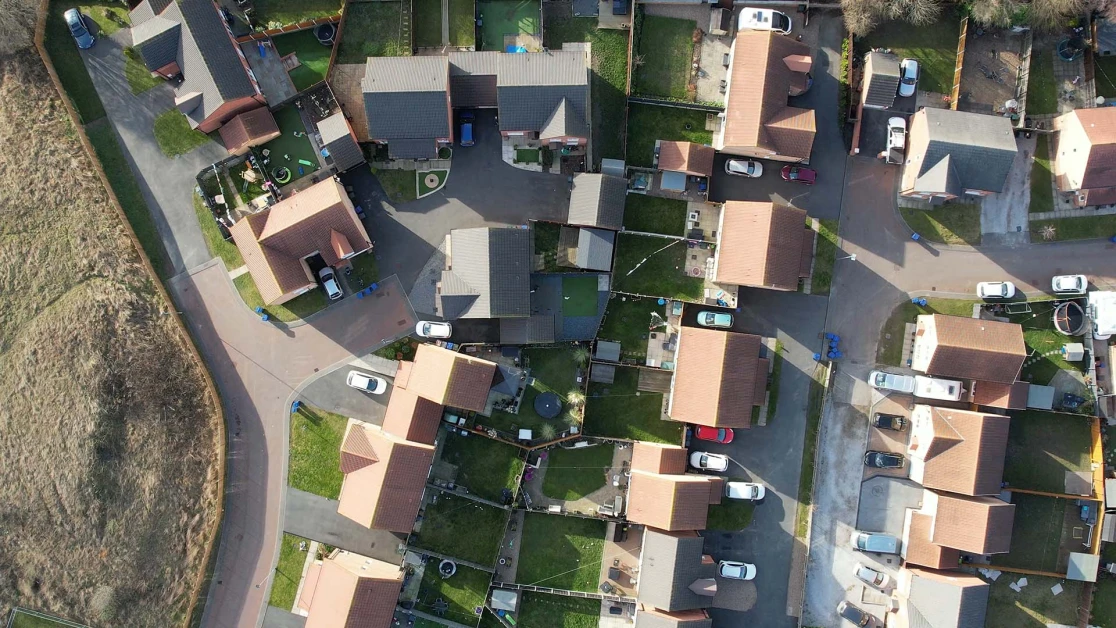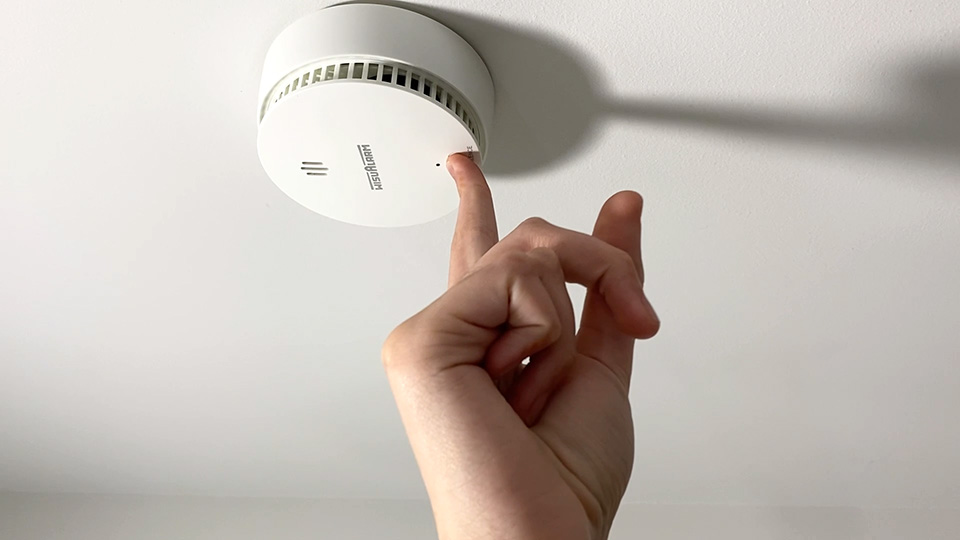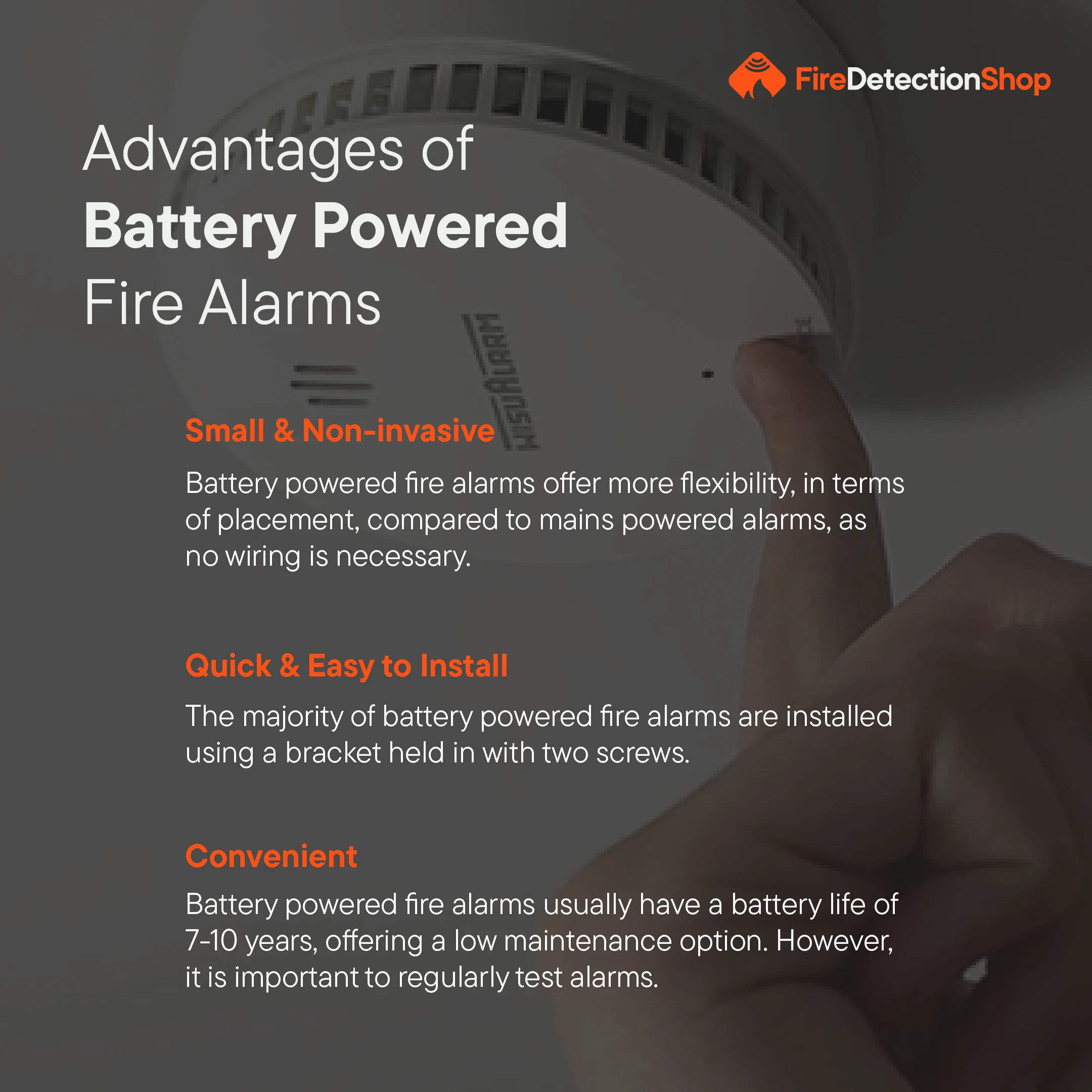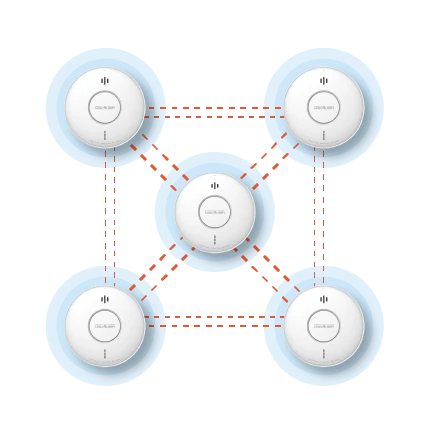
Need assistance?
Need Assistance? Call Us 0330 058 0630
24/09/2024 • by Alice P

Installing working fire alarms is a crucial element of a landlord's legal duty. For a landlord, this not only keeps your tenants safe but also significantly reduces liability risks. Properly maintained fire alarms can help protect you from potential legal consequences in case of fire-related incidents, while also minimising the risk of smoke or fire damage to the property.
Understanding the importance of installing functioning fire alarms begins with understanding the pre-existing legalities. These legal requirements vary depending on location and can change.
Within the UK, the legal rules for alarms that landlords must follow fall under the Smoke and Carbon Monoxide Alarm (Amendment) Regulations 2022. This came into force on the 1st of October 2022.
The regulations state, all relevant landlords must:
Ensure at least one smoke alarm is equipped on each storey of their homes where there is a room used as living accommodation. Heat detectors are not a replacement for this.
Ensure smoke alarms and carbon monoxide alarms are repaired or replaced once informed and found that they are faulty.
Ensure a carbon monoxide alarm is equipped in any room used as living accommodation that contains a fixed combustion appliance (excluding gas cookers). Typically, carbon monoxide alarms should be positioned at head height, either on a wall or shelf, approximately 1-3 metres away from a potential source of carbon monoxide.
If a landlord does not comply with these requirements, the local authorities can impose a fine of up to £5,000
In Northern Ireland, the same rules for landlords apply. However, the legislation contains additional requirements :
Heat and smoke alarms must be interconnected devices.
CO alarms do not have to be interconnected.
All alarms must be checked and working before tenants can move in.
Heat alarms must be installed in every kitchen. Any area that may trigger a false alarm (placing a smoke alarm near a fireplace) must be replaced with a heat alarm.
In Wales, the same rules apply. However, additionally:
Smoke alarms must be mains powered and interconnected
The rules for carbon monoxide alarms are illustrated in the fit for human habitation rules.
In Scotland, the requirements for fire detection systems in private rented properties are slightly different, emphasising interconnectivity.
Heat alarms must be installed in every kitchen
Heat, fire, and smoke alarms must all be interlinked
Carbon monoxide alarms do not need to be interlinked
A smoke alarm must be placed in the room used the most
As a landlord, there is a legal duty to keep tenants protected within the property. This means a landlord must comply with regulations and install the correct alarms. Fire, heat, smoke, and carbon monoxide alarms all respond to different risks but serve the same purpose – to keep tenants safe.
They keep tenants safe by alerting them to the potential risk of danger in plenty of time.
These alarms provide constant monitoring to protect the property and its occupiers. This will allow tenants to stay calm and evacuate safely from the building.
Prevents the spread of danger
These alarms will activate instantly, allowing professionals to extinguish the issue.
Fire alarms are a long-term solution
They can and will save lives. They also protect landlords from potential costs and liability. Ultimately, they are a way for landlords to take control of their property's safety, ensuring peace of mind.
A heat alarm is the perfect solution for detecting fire in kitchens . While smoke alarms are typically seen as ideal for fireproofing a home, false alarms are easily triggered by cooking fumes. Heat alarms monitor the level of heat in a room and if the temperature increases rapidly or abnormally the alarm will know this cannot be caused by cooking fumes and will be triggered.
The terms smoke alarm and fire alarm are often used interchangeably. Smoke alarms are designed to respond to the earliest stages of a fire. There are various types of smoke alarms, however, the most popular used today are optical smoke alarms, also known as photoelectric smoke detectors.
Photoelectric smoke detectors are suited to sensing slow-burning or smouldering fires. They work by using a light-sensing chamber. As smoke enters the chamber it disrupts the path of a laser and triggers the alarm.
Carbon monoxide alarms are critical to monitoring and alerting tenants to the risk of carbon monoxide. Carbon monoxide is an odourless, colourless, and tasteless toxic gas. Due to its properties, it can easily and unknowingly be inhaled. Carbon monoxide poisoning can be extremely harmful and can result in serious injuries. Therefore, having a carbon monoxide alarm to alert tenants to the danger is critical.

Battery and mains-powered alarms are separated by one key difference – how they are powered.
A battery-powered fire alarm is powered through a battery. These batteries tend to last around 7-10 years, however, it is advised that these are checked regularly.
Mains-powered fire alarms are connected directly to the home’s power supply through a permanent feed. Although these fire alarms may have backup batteries (in case of a power failure) they rely on the home’s electricity to keep running. The backup battery will either be a replaceable 9V alkaline battery or a rechargeable 10-year lithium-ion that will not need replacing.
1. Small and non-invasive – A battery powered fire alarm can be placed anywhere. This means they offer landlords flexibility.
2. Quick and easy to install – Battery, powered fire alarms can be installed by a landlord within the home without needing an electrician to install them.
3. Convenient – For busy landlords, batteries are easier to source and replace. This makes a battery-powered alarm far more convenient.

1. Longer life span - They reduce the stress of continual monitoring for battery life and reduce extra costs from prematurely replacing or fitting faulty batteries.
2. Continuous Power Supply – After connecting a mains-powered fire alarm to the main power supply for the home the alarm is all set. There is no need to stress about checking battery life or replacing the battery or worrying about the battery of the alarm failing in an emergency. If the home is powered the mains-powered alarm will work.
Within an interlinked alarm system, all alarms are connected. Interlinked smoke detectors use radios and other technologies to detect fires while connected throughout your home's system. If one alarm is triggered, all other alarms will also sound. This means that no matter where a fire breaks out, people will be alerted of potential fire danger.
These alarms can either be powered by tamper-proof lifetime batteries or by the mains with a backup battery. Interlinked smoke alarms can alert to fire danger quickly and cover a greater scope, minimising the risk of hidden fires. Smoke spreads fast so having a system that can respond so quickly is important for giving people extra valuable time to escape.
Interlinked alarms are compulsory for landlords to install in some areas of the UK, including Scotland, highlighting their importance and effectiveness. As a result, while it is not a legal requirement, it is advised that landlords opt for an interlinked smoke alarm system and fire safety equipment.

1. Quick response: Battery powered alarms reduce the risk of hidden fires and reduce the chance of potentially not hearing an alarm. This quick detection can provide people with crucial extra time to respond and evacuate from danger.
2. Wireless interconnect: Unlike mains powered systems, battery operated alarms continue functioning during power cuts, ensuring constant protection.
3. Convenient installation: These alarms can be easily installed without the need for an electrician, and can be monitored without requiring an engineer's expertise .
4. Non-invasive setup: Wireless interlinked alarms allow for a completely non-invasive installation. They can be fitted without damaging walls to access wires and will stay connected independently of the mains power supply.
With over 20 years in the fire detection industry, we have provided a range of systems to landlords across the UK and Ireland. Regardless of the type of smoke alarm you install, whether it is interlinked, battery powered, or mains powered, it is important to purchase and install reliable equipment.
At Fire Detection Shop, we stock a range of fire alarms ready for dispatch. If you need any assistance in choosing the right fire alarm for your property, we have a team of customer support advisors that are available on 0800 999 2661 or [email protected].
Alongside single units, we have designed a range of smoke alarm packs for landlords with properties in England, Wales, Scotland, and Northern Ireland.
18/03/2025 • by Alice P
11/01/2021 • by Lynsey B